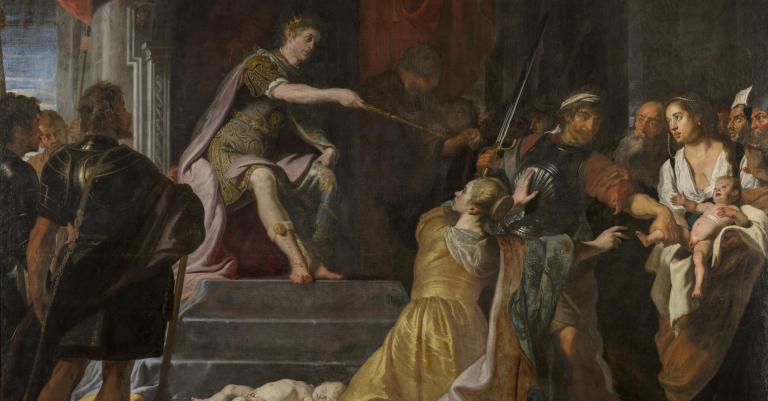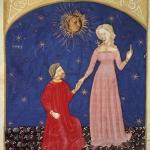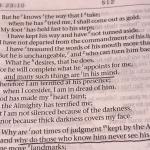Koheleth draws our eyes to abuses of power. The oppressed often have no one to comfort them, no one by their side, no advocate, no one to plead their case.
I have started a series on select passages from Ecclesiastes, offering a couple different approaches so far.
- regarding Solomon and the authorship of Ecclesiastes CLICK HERE
- knowing the times | an introduction to Ecclesiastes 3 CLICK HERE
- resonating in awe with the presence of God in Ecclesiastes CLICK HERE
- peace, love, and good questions in Ecclesiastes 3 CLICK HERE
- will of God vs. “what God has done” CLICK HERE
- “the good life” & its attraction CLICK HERE
- God’s hand holds all life CLICK HERE
i. one of Koheleth’s common threads in Ecclesiastes
Wisdom strengthen the wise
More than ten rulers of the city. Ecclesiastes 7.19, NKJV
The wisdom of the sage focuses on man in relation to others. In this new series of writings, we consider what he has to say about injustice, authority, and companionship.
We often have a tendency to compare ourselves with others. While some of what Koheleth relays may be seen as a trivial comparison, he is really driving at an underlying wisdom that we can develop in our daily relations. Godly wisdom is needed in our relationships with authorities and friends.
The Scripture for this article is Ecclesiastes 3.16-17; 4.1-6 CLICK HERE
ii. day of reckoning
Koheleth sees or perceives a truth “under the sun” (Eccl 3.16).
“The book of Eccl frequently repeats the phrase ‘under the sun’ to emphasize that this earthly life is lived in monotonous drudgery with little meaning when viewed from a godless perspective” (R. Laird Harris, Gleason L. Archer, and Bruce K. Waltke, eds., Theological Wordbook of the Old Testament, vol. 2, Moody Press, p. 940).
Koheleth sees wickedness flourish in places where justice and righteousness ought to rule (Eccl 3.16). We tend to equate the place of judgment with the courts. In fact, one translation states:
I also noticed that under the sun there is evil in the courtroom. Yes, even the courts of law are corrupt! Eccl 3.16, NLT
However, judgment is a term that not only includes the judicial branch of government, but any and all activities of civil authorities. Where there should be proper civil action, where there should be righteous and Godly ethical behavior, there is wickedness.
Here, Koheleth is talking about the civil government, but remember Israel is a Theocracy, not a Democracy. It is a government ruled by priests and kings. In our society, Koheleth might speak of great churches or denominations, wielding great power in society.
iii. are there ever abuses of power within the church?
How can we develop or encourage proper Biblical church authority?
What is one to do when he witnesses this type of corruption?
Koheleth reminds himself that there is a day of reckoning. There is a day when everyone will stand before God’s judgment seat, “there is a time,” or there is a “due season” (Eccl 3.17, NKJV and NLT).
Once again, the poet refers to the sacredness of time. However, the divine appointment he speaks of now will not be so welcomed by everyone.
I said to myself,
“God will bring into judgment
both the righteous and the wicked,
for there will be a time for every activity,
a time to judge every deed.” Eccl 3.17, NIV
For those who serve God, the day of reckoning is a welcomed event, a rite of passage into everlasting life. For the wicked, this is a terrifying moment, a pronouncement of damnation, a point of entrance into everlasting torment.
All will be revealed.
We can either take comfort in this thought, as Koheleth does, or we can be terrified by it.
iv. plight of the oppressed
The eyes of Koheleth are opened to the world around him, and to true suffering. If Koheleth is indeed Solomon, then he has lived his entire life in the courts of the king. There are a completely different set of troubles that someone like Solomon faces, but in the following statements he appears to be moved with compassion for the needs of others.
No matter how difficult our times may be, we can usually find someone who is suffering to a greater degree. May our eyes be turned ever outward, not merely inward.
James L. Kugel, a Hebrew Bible scholar masterfully translates Koheleth’s statement of compassion from Eccl 4.1:
“But I reconsidered and saw all the oppression that is done on this earth – look, there are the tears of the oppressed, who have no one on their side. Their oppressors have the power, but they have no one on their side.” (The Great Poems of the Bible: A Reader’s Companion with New Translations, Free Press, pgs. 317-318)
Koheleth takes a closer look at the oppressed who are crying out. His main concern is not simply that they do not have enough, but that they are oppressed by others.

“The verbal root ‘ashaq [oppressed] is concerned with acts of abuse of power or authority, the burdening, trampling, and crushing of those lower in station.” (R. Laird Harris, Gleason L. Archer, and Bruce K. Waltke, eds., Theological Wordbook of the Old Testament, vol. 2, Moody Press, p. 705)
There are those who maliciously take advantage of people under their influence.
v. Koheleth draws our eyes to abuses of power
The oppressed often have no one to comfort them, no one by their side, no advocate, no one to plead their case.
“The point is the powerlessness of man in the face of these disorders, his inability to right himself, the incompetence of others to aid him.” (W.J. Deane, “Ecclesiastes,” The Pulpit Commentary: Proverbs, Ecclesiastes, Song of Solomon, vol. 9, ed. H.D.M. Spence and Joseph S. Exell, Wm. B. Eerdmans, p. 87)
Koheleth exclaims it would be better to die than to continue to face this type of suffering, or rather that those who are dead do not have these concerns any longer (Eccl 4.2).
He goes one step further and says that it would be better for someone to not be born, than to face these troubles (Eccl 4.3).
vi. are we authentically connecting with the oppressed?
How often do we look at suffering and offer trite, Christian-sounding answers?
Koheleth offers no surface-level response. He leans in, connects with, and validates the oppressed.
Sometimes we suffer in this life and there is no apparent answer or reward. Koheleth does not say suffering is pointless, or God is not involved. He simply joins with the oppressed.
How would others feel if we authentically reached out to them and joined them in the point of their need?
How would they feel if we genuinely comforted them, walked by their side, advocated for them, took up their cause?
What is our typical response when we engage those who are suffering?
Do we join them at the point of their need, or do we try to cheer them up with a trite thought?
Rejoice with those who rejoice, and weep with those who weep. Romans 12.15













